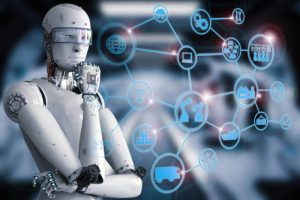 Technology moves at breakneck speed, and we now have more power in our pockets than we had earlier. And Artificial Intelligence is taking one step further in making our lives easier by its self-learning capabilities. Technology is giving life the potential to flourish like never before.
Technology moves at breakneck speed, and we now have more power in our pockets than we had earlier. And Artificial Intelligence is taking one step further in making our lives easier by its self-learning capabilities. Technology is giving life the potential to flourish like never before.
The machines we use on a daily basis are getting smarter, meaning that AI is no longer a futuristic technology but is increasingly integrated into every realm of our lives.
The adoption of AI across wider society – particularly when it involves dealing with human data – is hindered by the “black box problem.” Mostly, its workings seem arcane and unfathomable without a thorough understanding of what it’s actually doing. To achieve its full potential AI needs to be trusted – we need to know what it is doing with our data, why, and how it makes its decisions when it comes to issues that affect our lives or anything that is important.
AI points towards a future where machines not only do all of the physical work, as they have done since the industrial revolution but also the “thinking” work – planning, strategizing and making decisions.
Although we don’t know the exact future, it is quite evident that interacting with AI will soon become an everyday activity. There are ways that AI technology can influence our future, and this very fact has professionals across multiple industries extremely excited for the ever-burgeoning future of artificial intelligence.





